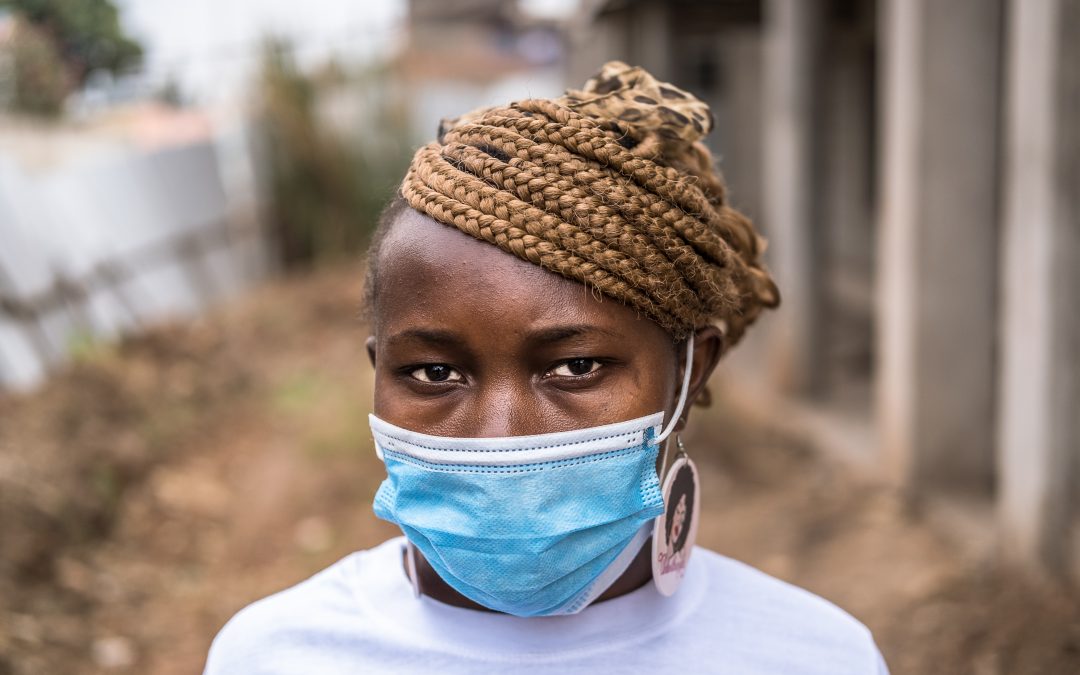On Wednesday, the Githurai Youth Empowerment Centre in Githurai, Nairobi County, Kenya celebrated International Youth Day and hosted a panel to discuss vital issues affecting youth in Kenya, namely teenage pregnancy, youth unemployment, and access to family planning measures.
Photographer Brian Otieno interviewed participants about how the COVID-19 pandemic has affected them personally, how access to information on family planning and sexual and reproductive health and rights (SRHR) has been impacted, and what they hope for the future.
Read on to meet the youths facilitating change in Githurai!
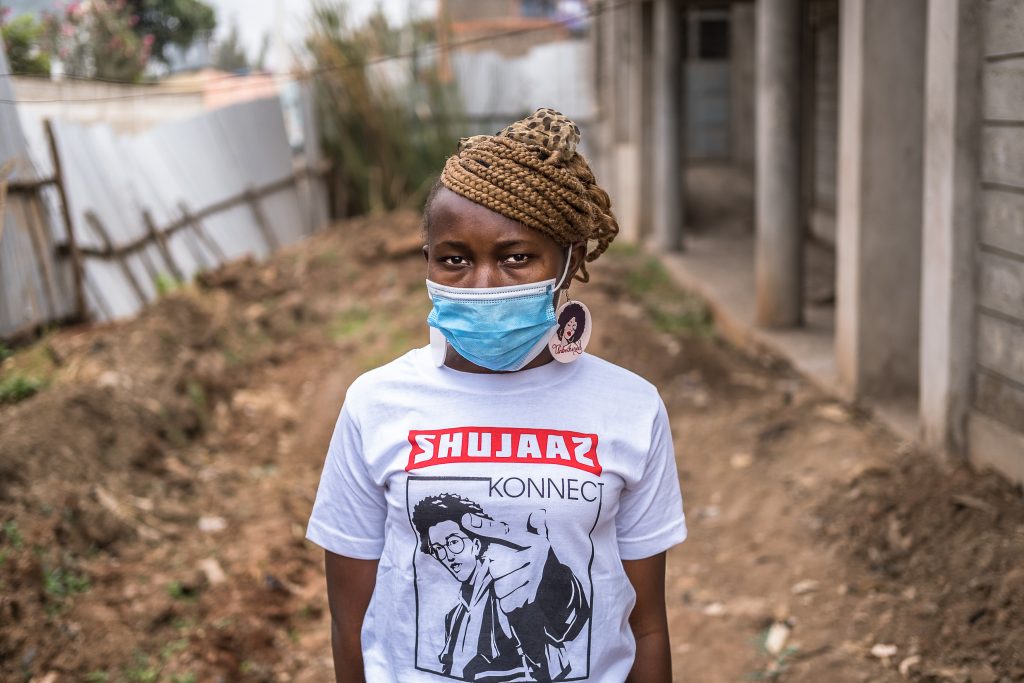
Jackie Kahwai, photographed by Brian Otieno for DSW.
“COVID-19 has affected us as young people because we can not access some of the services in sexual and reproductive health (SRH) in our youth centre and the number of services has also been reduced. We always have services twice or three times a month but, due to COVID-19, we cannot have those services. What worries me the most now is that the youths are not able to access family planning services like we used to do and also there are no jobs for them.
What I would like to see to ensure that my rights are protected and respected is to have more youth-friendly services and facilities built in my community. Also, youths should be engaged more in matters relating to SRH, empowerment and advocacy. If this pandemic continues, we will be at high risk, mostly of teenage pregnancies. Teenage pregnancy has increased now because schools are closed and children are at home and they cannot access family planning services, mainly because of fear of going to healthcare facilities. We don’t have youth-friendly centres and that is what they want.”
Jackie Kahwai, 22, is a peer educator at the Link Empowerment Inititative.
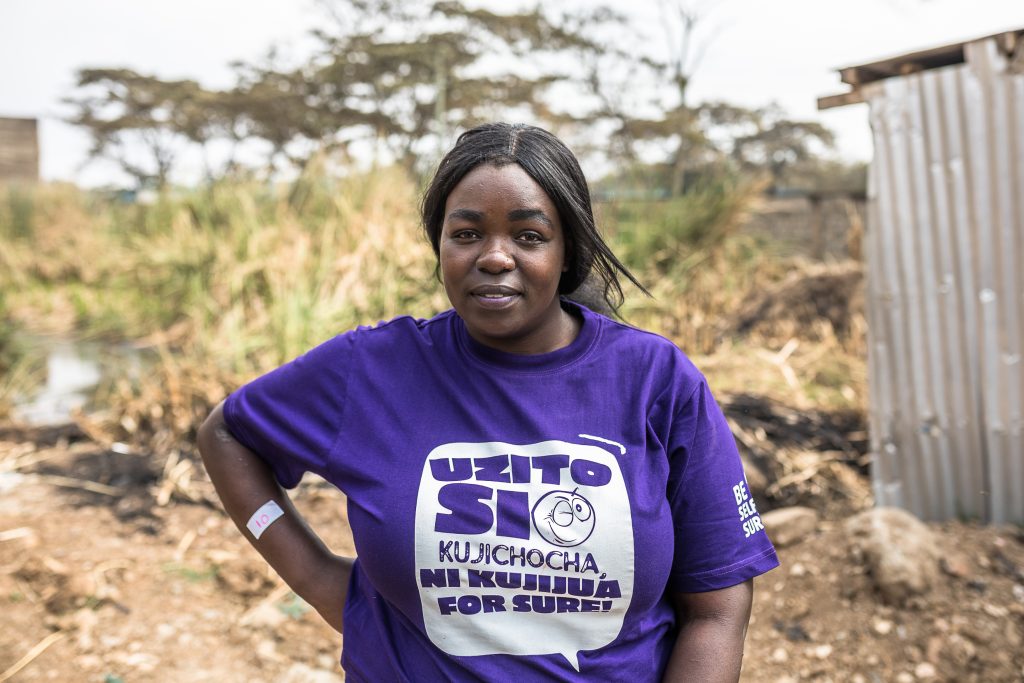
Lucy Melvin, photographed by Brian Otieno for DSW.
“I feel like a lot of things have changed since the beginning of the pandemic. First, many of the activities we used to do at the youth centre have stopped. Access to SRH services and information has also reduced and, because of that, many young people, especially girls, are getting pregnant because nobody is there is to guide and talk to them about family planning and the use of contraceptives.
To ensure that my rights or our rights as youths are promoted and respected, we must educate the young people with information on SRHR and family planning. We need to reach out to many people in the community with the right information and equip them with the skills that they will use to make their life better.”
Lucy Melvin, 22, is a member of the Link Empowerment Inititative.
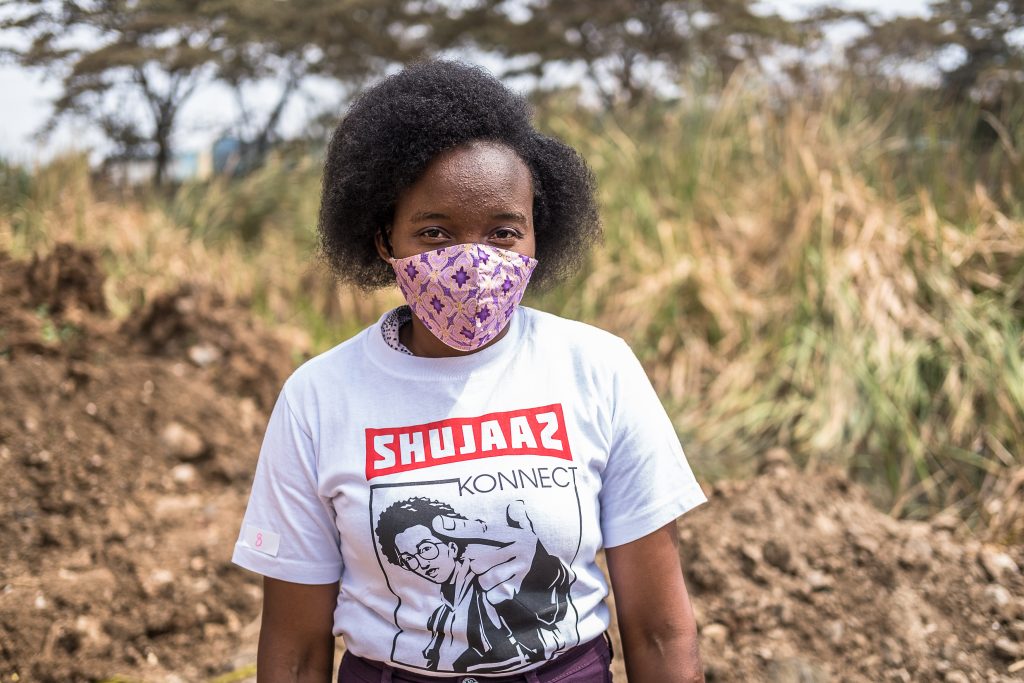
Joan Mutheu, photographed by Brian Otieno for DSW.
“Since the onset of the COVID-19 pandemic, a lot of things have changed, for example, my source of income has reduced since I go door-to-door looking for my customers for my hairdressing work. Now no one calls me to ask for my services because they are afraid I might take the coronavirus to their houses. When we are out distributing HIV self-test kits, people won’t talk to us for fear that we have COVID-19 and might transfer the virus to them.
Access to information on sexual and reproductive health and rights have reduced during the pandemic. Now you find that many girls are getting pregnant since they do not have access to family planning services and contraceptives. What worries me the most is that teenage pregnancy has risen by over 50% and that has affected the lives of many girls in my community. To ensure that the rights of women and girls are respected, I would like to see a safe place for youths where they can go and talk about sexual and reproductive health. Sexual and reproductive health is a human right! When young people go to health facilities, they should take their time to understand all kinds of contraceptives, their effects and what’s good for them.”
Joan Mutheu, 25, is a community health volunteer and a member of the Link Empowerment Initiative.
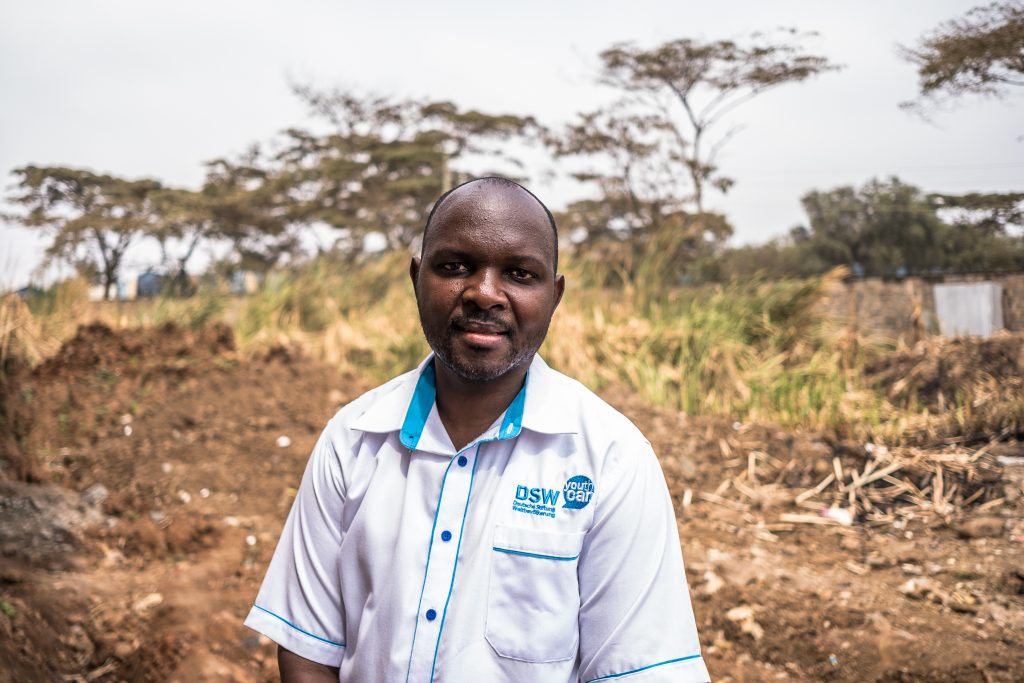
Joshua Ongwae, photographed by Brian Otieno for DSW.
“Even with COVID-19, there are still opportunities for us. I see people are already adapting to the changes brought by the pandemic like wearing a mask, social distancing, and working from home. I see a future where young people will capitalise on technology. More than 20% of the Kenyan population are young people between 15 and 24. I see us capitalising on the demographic dividend from the young population for transforming this country. I know there are challenges such as youth unemployment, teenage pregnancies, poor access to SRH services, but I see hope. I see information being disseminated through online platforms like social media and I see young people accessing these resources to improve their lives.”
Joshua Ongwae is a DSW staff member in Kenya.
At DSW, we believe that it is vital to invest in the future of the largest youth generation in history. Watch this space for more accounts of the effects of COVID-19 on the lives of young people in Kenya.
